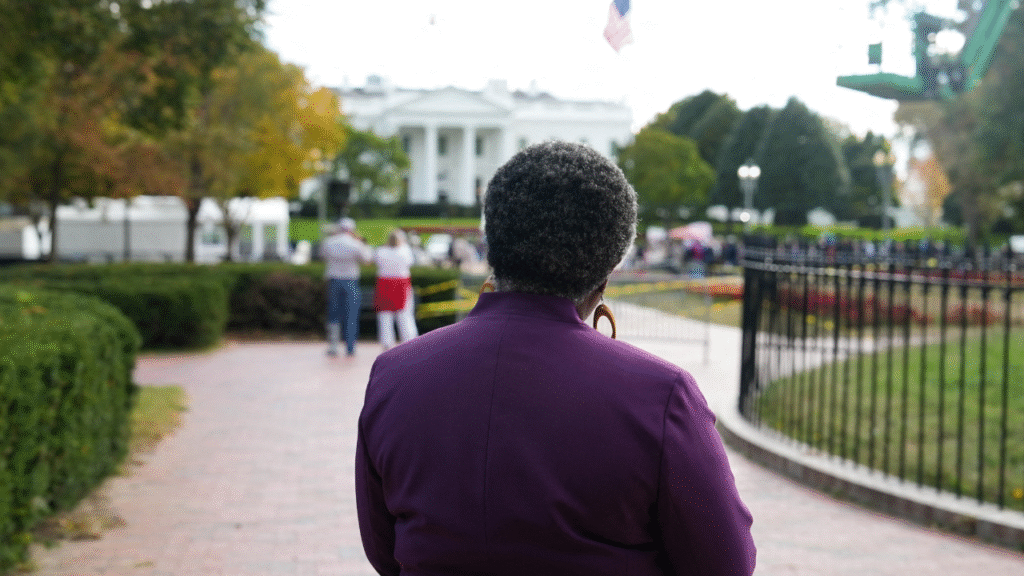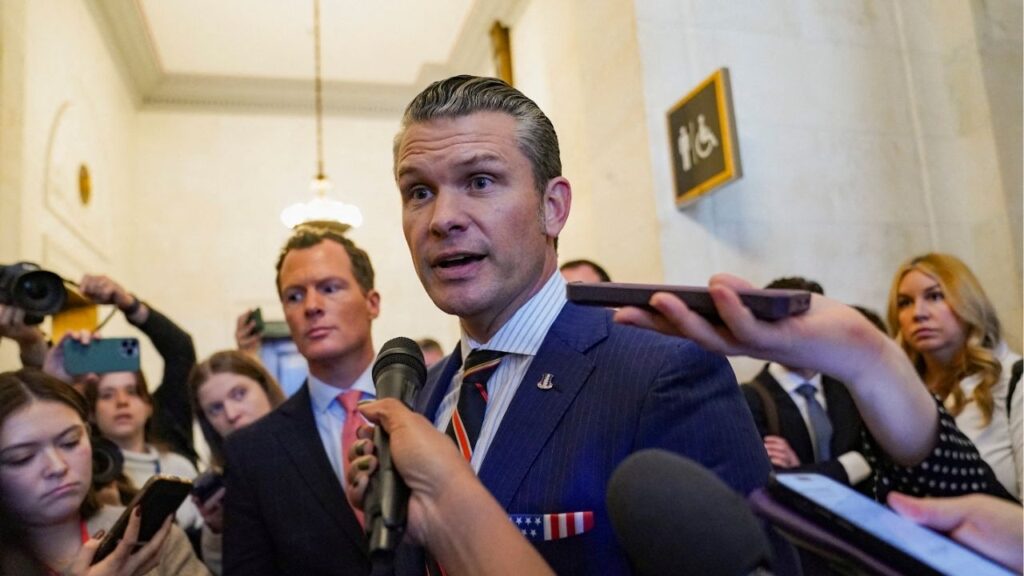Republican Congress challenges California's clean air authority and debates tax deduction costing the state's residents billions annually. (CalMatters/Camille Cohen)

- House legislation threatens California's authority to impose strict emission standards and ban gas-powered cars by 2035.
- California's zero-emission vehicle sales have stalled at 25%, falling short of the state's 35% target set for 2025.
- The $10,000 SALT deduction cap has created a cross-party conflict affecting high-tax states like California.
Share
This commentary was originally published by CalMatters. Sign up for their newsletters.
Four months into Donald Trump‘s second presidency, Republican legislative leaders are attempting to give him some major victories. Two of the most contentious issues now awaiting votes would have particularly heavy impacts on California.
</>One pending measure would cancel, or at least try to cancel, California’s long-standing waiver of federal clean air rules that allows the state to impose tighter restrictions on emissions. More specifically, legislation that passed the House of Representatives — with support from several dozen Democrats — is pending in the Senate and would undermine California’s decree that no new gasoline-powered cars could be sold in the state after 2035.
California’s Clean Air Waiver Under Threat
Another issue is whether a $10,000 cap on the deductibility of state and local taxes on federal tax returns, passed in 2017 during Trump’s first stint as president, will remain in force, be repealed, or be altered.
It has the effect of raising federal levies on taxpayers in states with high income tax rates, such as California, and is seen by leaders of those states as punitive. When the cap was enacted, California tax authorities estimated that it would cost Californians another $12 billion a year.
When the House voted a few weeks ago to cancel California’s Clean Air Act waiver — and those of other states that have followed its lead — Gov. Gavin Newsom cried foul, contending that the action illegally invoked the Congressional Review Act.
The Battle Over EV Mandates
“Trump Republicans are hellbent on making California smoggy again,” Newsom said in a statement. “Clean air didn’t used to be political. In fact, we can thank Ronald Reagan and Richard Nixon for our decades-old authority to clean our air.
“The only thing that’s changed is that big polluters and the right-wing propaganda machine have succeeded in buying off the Republican Party — and now the House is using a tactic that the Senate’s own parliamentarian has said is lawless.”
During his first presidency, Trump tried to cancel California’s waiver but failed. The nation’s automakers, although displeased by the 2035 decree, didn’t back Trump’s move.
That was then and this is now. Sales of zero emission vehicles, which were booming a few years ago, have flattened. California had contended that 35% of new vehicle sales in California would be zero emission cars by 2025, but purchases seem to be stuck at about 25%. Major automakers, such as General Motors, now contend that the 2035 mandate is unrealistic.
On Tuesday, U.S. Senate Majority Leader John Thune declared that the chamber would soon vote on the waiver, indicating that he has the votes, and it could garner support from some Democrats, as it did in the House. Its passage probably would touch off a legal battle.
SALT Deductions: A Cross-Party Conflict
The aforementioned deductibility of state and local taxes, dubbed SALT by the issue’s political warriors, is less settled.
“The SALT deduction has become an outsize stumbling block for Republicans trying to pass a $3.8 trillion tax proposal that would extend President Trump’s 2017 tax cuts and roll back subsidies for clean energy, among other things,” the New York Times reported last week.
“A group of Republican House members, mostly from New York, New Jersey and California, have vowed to vote no on the package unless the cap, which helped pay for the 2017 cuts and expires this year, is raised or abolished. And even among the holdouts, there is dissension — something that drew attention … during a Republican caucus meeting with Speaker Mike Johnson.”
The issue cuts across party lines, pitting legislators from the most affected states against mostly red states that are largely unaffected. While Trump apparently wants to keep the $10,000 cap, the possibility of raising it, perhaps to $30,000, is kicking around. The issue remains deadlocked.
This article was originally published on CalMatters and was republished under the Creative Commons Attribution-NonCommercial-NoDerivatives license.
Make Your Voice Heard
GV Wire encourages vigorous debate from people and organizations on local, state, and national issues. Submit your op-ed to bmcewen@gvwire.com for consideration.
RELATED TOPICS:
Categories





















